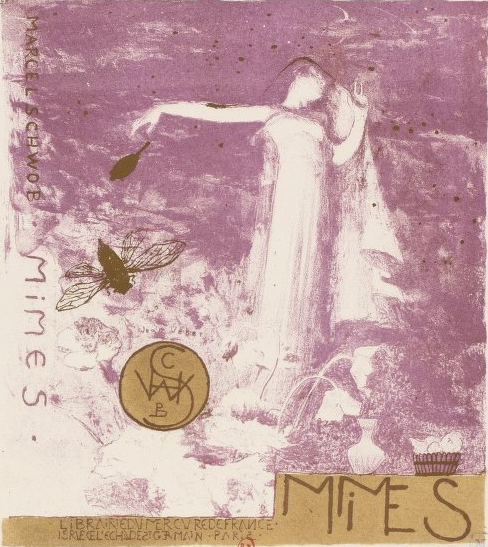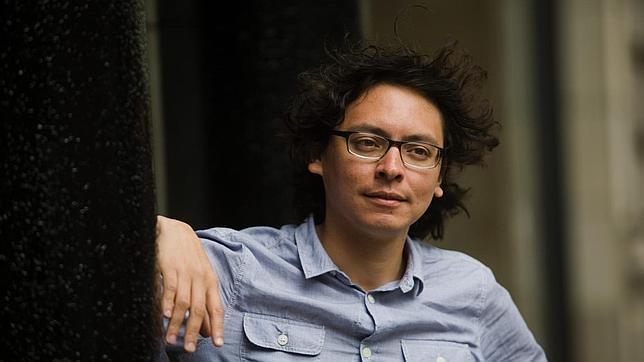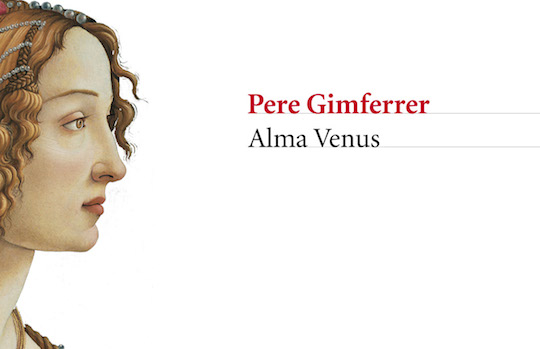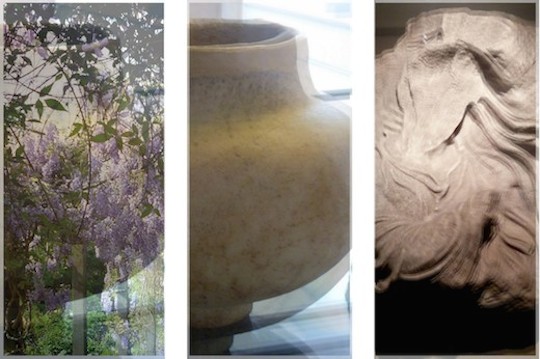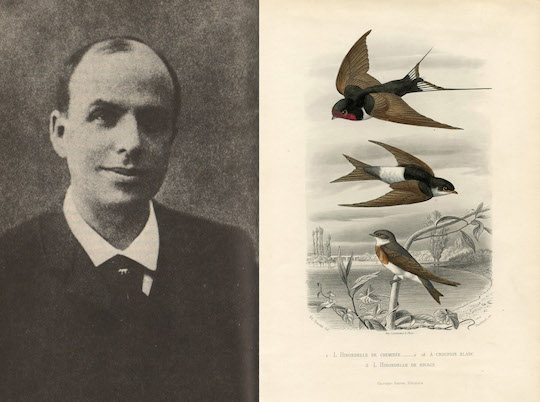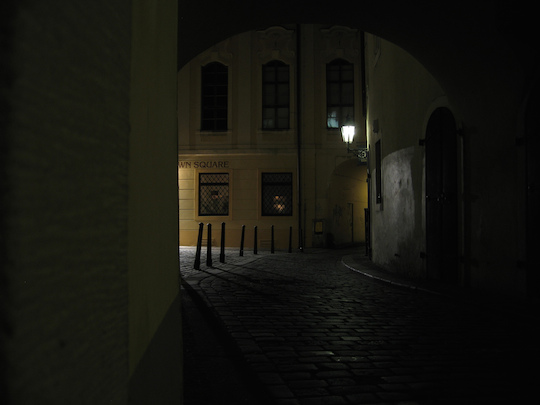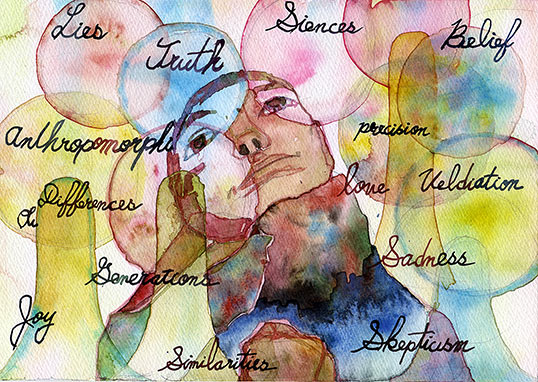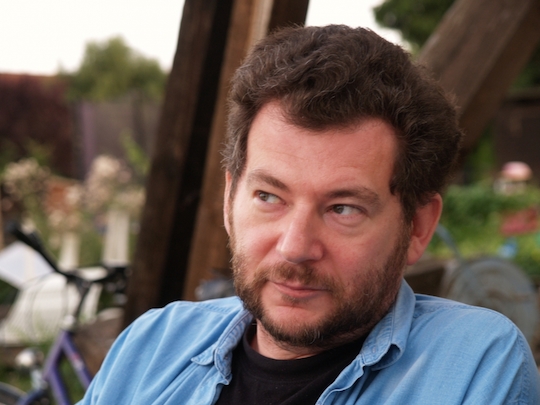Read all previous posts in Asymptote’s “Mimes” translation project here.
Mime VIII. The Nuptial Eve
This new-wicked lamp burns a fine, pellucid oil before the evening star. The threshold is scattered with roses that the children have not gathered up. Dancers balance the last torches that wave fiery fingers into the shadows. The little flutist has blown three more harsh notes into his flute of bone. Porters have come bearing cases brimming with translucent anklets. This one has coated his face in soot and has sung me a song that mocks his deme. Two women, veiled in red, smile in the settled air, rubbing their hands with cinnabar.
The evening star rises and the heavy flowers close. Near the wine vat covered by sculpted stone, a laughing child sits, his radiant feet strapped into sandals of gold. He waves a pine torch and its vermillion braids whip out into the night. His lips hang open like the halves of a gaping fruit. He sneezes to the left and the metal sounds at his feet. One bound and I know he will be gone.
Io! Here comes the virgin’s yellow veil! Her ladies hold her up beneath her arms. Do away with the torches! The wedding bed awaits, and I will guide her into the plush glimmer of the purple cloth. Io! Plunge the wick into the sweet-scented oil. It sputters and dies. Put out the torches! Oh my bride, I lift you to my chest, that your feet do not crush the threshold roses.

